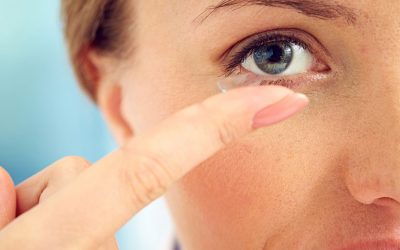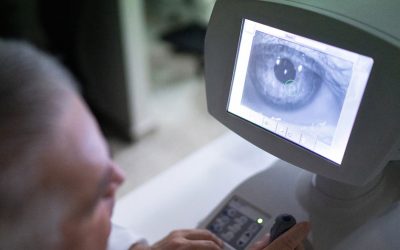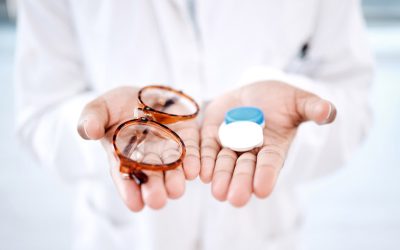Our Blog
in Charlotte, NCSigns You Need Reading Glasses
Many reading eyeglasses don't have prescriptions but come with generic strengths. This type of eyewear helps with near vision and can be bought over the counter. You might have to get these glasses if you struggle reading printed materials or text on digital screens....
5 Ways Your Vision Changes as You Age
As you progress through life, your body undergoes various changes, and your eyes are no exception. Aging can increase your likelihood of developing some vision problems. Understanding the changes your eyes go through over the years can help you maintain optimal eye...
Eyeglass Lens Coatings: What You Need to Know
When selecting new eyeglasses, you usually look for frames and colors that suit your face shape and skin tone. However, physical appearance isn't the only thing you should consider when deciding. You must also factor in lens coatings, which can improve the performance...
Contact Lenses: Do They Offer Protection From UV Rays?
Contact lenses can help people with nearsightedness, farsightedness or astigmatism see better. This vision correction option is an excellent alternative for those who don't prefer prescription eyeglasses. They are comfortable to wear and provide better peripheral and...
How Are Prescription Lenses Made?
Glasses are more than just a means to correct vision; they're a fusion of science and style. But have you ever pondered the journey of how prescription lenses are crafted before they end up framing your eyesight? It's a fascinating process that marries centuries-old...
Is Sunlight Good or Bad for My Eyes?
When considering the sun's impact on our eyes, it's crucial to strike a perfect balance between beneficial and harmful effects. In this blog post, the trusted optometrist at Spectrum Eye Care, explores both the benefits of safe sun exposure and the risks of UV damage,...
A Guide to Contact Lens Solutions
Taking care of your contact lenses is crucial to maintaining your eye health. But with so many contact lens solutions available, knowing which one is right for you can be confusing. Contact lens solutions are a complex blend of various ingredients that work together...
Identifying and Diagnosing Various Types of Cataracts
The risk of developing eye conditions such as cataracts increases as we age. But did you know that not all cataracts are the same? Cataracts come in various types, each with its own unique set of symptoms and progression patterns. As cataracts are one of the leading...
How Do You Protect Your Vision as You Age?
Your eyes age with the rest of your body. If you are 40 or older, you might begin experiencing changes in your vision. Seeing nearby objects or adjusting to dim environments might be more difficult. Age is also a risk factor for various sight-threatening conditions...
Deciding Between Eyeglasses and Contact Lenses
After a comprehensive eye exam, your doctor will tell you if you have nearsightedness, farsightedness, astigmatism or other refractive errors. Eyeglasses are the most common option for those who need vision correction. However, contact lenses can also help you see...
Contact Lenses: How Are They Made?
Contact lenses are marvels of optical technology. They sit comfortably on your eyes all day, giving you an almost natural vision. Once you slip them into your eyes, the world is suddenly in clear focus. Read on to learn how contacts are made. Soft Contact Lenses...
A Quick Guide to Selecting the Best Sports Eyewear
The right gear can make all the difference in your performance as an athlete. This includes the eyewear you use during your games or training. It ensures your eyes, one of your most valuable assets, are well-protected in the field. The proper sports eyewear can help...












